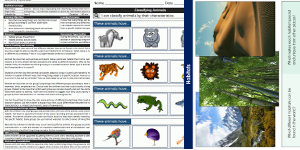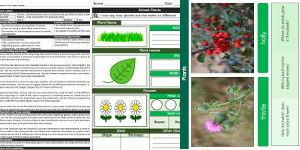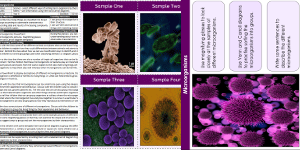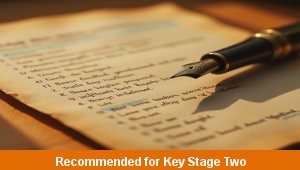Living Things and Habitats

This science scheme of work for Key Stage Two gets the children to identify, group and compare some of the different plants and animals that live in a variety of habitats around the world. The class can categorise some of the different animals and plants found living in the school grounds.

Identify, group and compare some of the different plants and animals that live in a variety of habitats around the world

Lesson One : Habitat Groups
Investigate and illustrate some of the different ways of grouping and classifying species of animals that live in specific habitats around the world

Lesson Two : Taxonomy
Identify and define the correct vocabulary words that can be used to classify and order animals into different groups by their matching characteristics

Lesson Three : Plant Labels
Develop and test some of the special ways that can be used to classify and group different types of plants by their matching characteristics

Lesson Four : Microorganisms
Select and record some of the special ways of sorting different types of microorganisms into matching groups by their appearance and growth

Lesson Five : Species Identification
Practise building and using classification keys to model how to differentiate between different species of animals by their matching characteristics

Lesson Six : New Species
Explain and illustrate how to identify, describe and classify some new species of different plants and animals by their matching characteristics

Living Things and Habitats Assessment
Assess abilities in identifying, grouping and comparing different plants and animals that live in a variety of habitats around the world
-

Length Calculations
Practise using number calculations skills for addition, subtraction, division and multiplication when solving problems related to length measurements
-

Maths Calculations Assessment
Assess abilities in solving a range of different number problems for addition and subtraction when working with informal and formal written calculations
-

Determinant Lists
Explain and model how to make lists of objects used and found in different locations to match the correct determinants of a and an
-

English SPAG Assessment
Assess abilities in composing sentences for fiction and non-fiction using the correct spellings, punctuation marks and grammar vocabulary phrases
